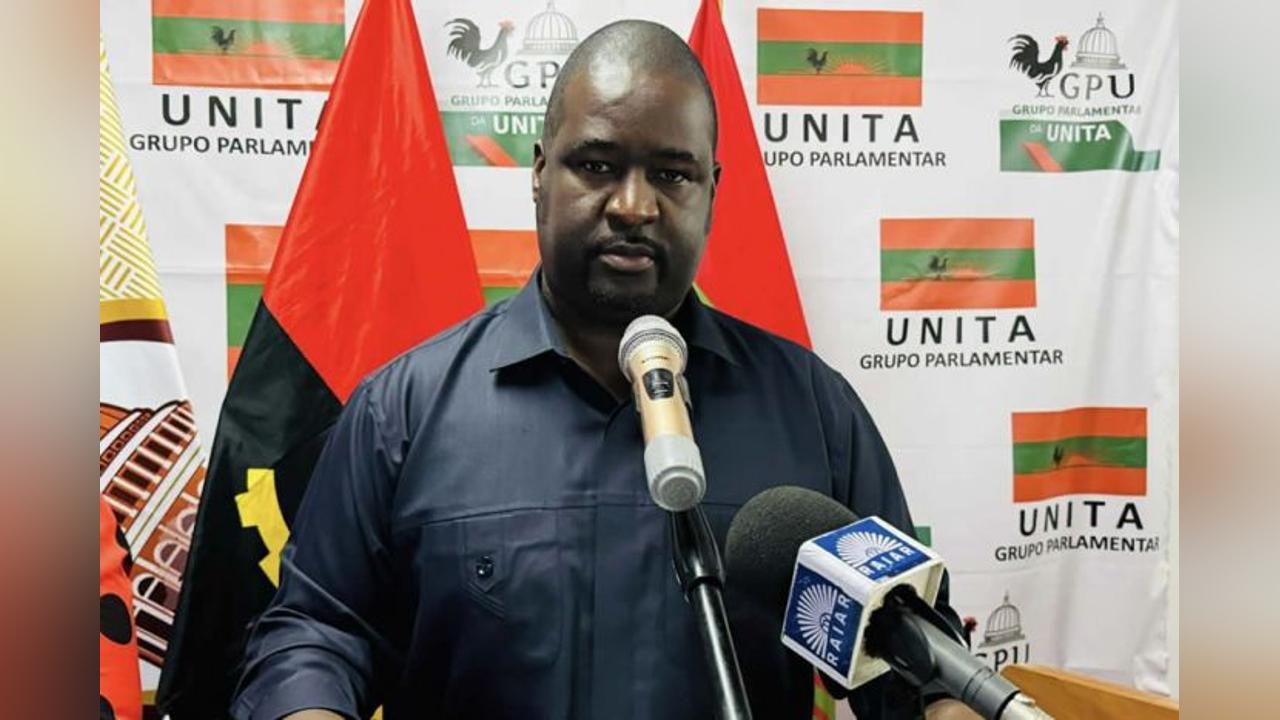
Africa-Press – Angola. UNITA accused this Friday, 25th, the President of the Republic, João Lourenço, of wanting to revoke voter cards, even knowing that more than a third of voters in Angola do not have an Identity Card.
At a press conference to clarify “the risk contained” in the proposal for the Organic Law of General Elections, initiated by the Government, the leader of the UNITA Parliamentary Group, Liberty Chiyaka, said that “the time has come to return power to the people”.
“The President of the Republic wants all people to vote using only their Identity Card on election day. He wants to eliminate the need for and validity of the electoral card, even though he knows that more than a third of living voters do not have an Identity Card”, said the deputy.
According to Chiyaka, the President of the Republic (PR), “at the end of his term and with political and democratic legitimacy seriously shaken, should not condition or disturb the exercise of sovereignty by the people, much less drastically and untimely change, and without well-founded reasons, the norms and procedures that regulate the electoral process”.
“Is there any need to change the Unofficial Electoral Registration Law again in order to hold an election in Angola? Electoral registration has been unofficial since 2010 and people have been called to make in-person updates since 2011. Electoral registration is permanent,” he added.
According to the deputy, the Executive’s Proposal aims to exclude or reduce to a minimum the participation of the electorate that traditionally votes for UNITA.
“Approving the discontinuation of the use of the voter card as a valid document for voting, canceling the obligation to record the voter’s presence in the specific electoral register corresponding to the polling place closest to their residence, allowing the mobility of voters and polling stations without creating secure biometric control mechanisms that prevent multiple voting… All of this is to harm UNITA,” he said.
For UNITA, the proposal to amend the Organic Law on the Organization and Functioning of the CNE “only addresses specific issues that do not resolve the underlying structural problems that were identified and does not address the underlying issues that concern the people, the holder of the sovereign power whose transfer the CNE oversees”.
Regarding the Law on unofficial electoral registration, according to UNITA, “it is proposed to reduce the confusion of roles between the Executive and the CNE in the process, eliminating the risk factors of chronic disruption of the Electoral Registers, by increasing the guarantees of reliability of the data in the BDCM (Database of Adult Citizens), the FICM (Computer File of Adult Citizens) and the Electoral Registers”.
“It maintains the unofficial electoral register, subject to proof of life, allows citizens without an Identity Card to vote and certifies the existence of the voter through proof of life. It proposes that citizens who turn 18 by the first Tuesday of the last fortnight of August of the election year can be included in the BDCM and in the updated FICM and submitted to the CNE in the previous year, delimits the unofficial electoral register until the issuance of the updated FICM and submitted to the CNE, clarifies the beginning and end of the unofficial nature of the registration and extends its mandatory nature and free of charge to the FICM, establishes the mandatory proof of life in two moments, one normal, carried out by the Executive, and another special, carried out by the CNE”, he listed.
According to UNITA, the laws of democracy should not impede or hinder the organization of democratic and transparent elections, nor the control of the People’s vote by the People themselves.
“It makes it optional for the Executive, depending on the context of each territorial district, to provide technological, digital means, telephone lines and face-to-face posts in municipal and communal administrations that allow interested parties to promote the correction of errors or omissions in their data”, he said.
For More News And Analysis About Angola Follow Africa-Press





